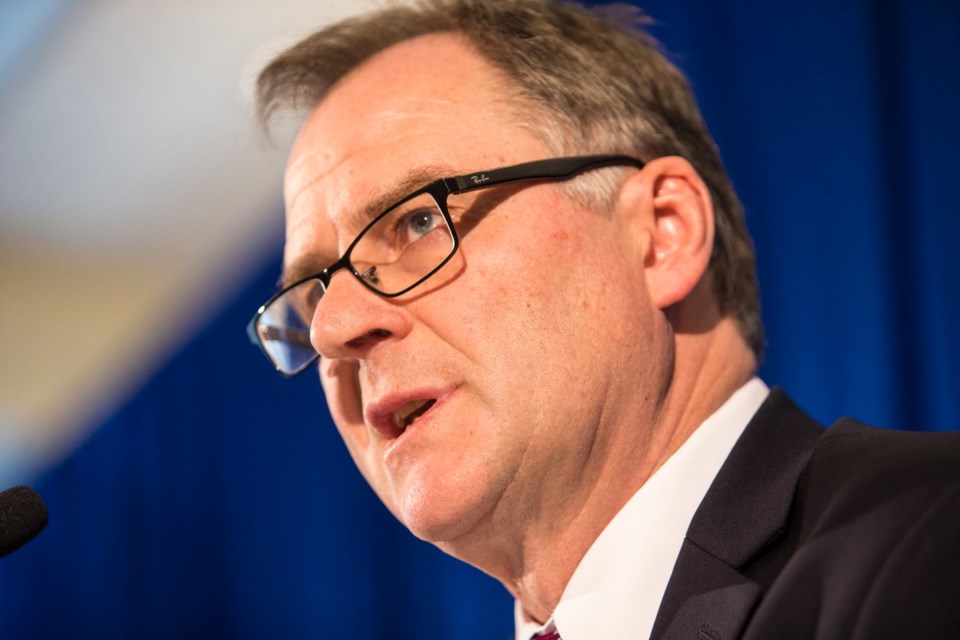Vulnerable people are waiting too long when they call the government for income and disability assistance, the province’s ombudsperson says.
A recently released report found that people phoning the Ministry of Social Development and Poverty Reduction’s call centre for help continue to face long wait times, sometimes waiting more than an hour.
“Imagine that frustration when you’re on hold, because you’re waiting to see if you’re going to have money for food or shelter,” said ombudsperson Jay Chalke. “These are individuals who are applying for or are on income and disability assistance, so obviously a group for whom there are many challenges.”
Chalke said his office receives more complaints about the ministry than any other public authority. In 2019, the 518 complaints lodged against the Ministry of Social Development and Poverty Reduction accounted for 27 per cent of all complaints made about the province’s 19 ministries.
“Just receiving complaints about a public authority doesn’t in and of itself indicate poor public administration,” Chalke said. “What it indicates is that people really need the services delivered by that public authority. Timely service is a fundamental aspect of fair and reasonable public services.”
The ministry’s telephone system handles about 125,000 calls each month.
In response to a variety of complaints, including long wait times, Chalke initiated an investigation into the ministry’s call centre and released a report in April 2018 that found wait times were “chronically and consistently unreasonably long.”
Chalke’s office made nine recommendations focused on daily average wait times and maximum call wait times to improve service for applicants and recipients of income and disability assistance.
The ministry has fully implemented four of the recommendations, including providing statistics on its website on the daily average wait time and longest daily call, phasing out strategies to reduce wait times that resulted in reduced service and allowing more than one request per call.
But the ministry rejected the ombudsperson’s timeliness standard of answering calls within 10 minutes for 95 per cent of all days in each month. Instead, they set a goal to answer 80 per cent of calls in 10 minutes or less, and failed to reach that standard.
Chalke’s recent report found that between April and October 2019, the ministry met that goal 33 per cent of the time. “This simply isn’t good enough,” he said. “The ministry declined to adopt the target we recommended and substituted its own target, and even that it couldn’t meet.”
Minister Shane Simpson said the ministry has made significant progress since the first report came out in 2018, but there is always room for improvement.
“We have lots of days where we meet the standard. And, to be quite honest, we have days where we don’t meet the standard,” Simpson said. “We’re certainly working to try to improve that situation.”
Simpson said the ministry has added 20 staff to the call centre and reduced overall wait times since 2018. The average wait time was reduced to under 10 minutes in December 2019 from more than 13 minutes the previous December.
“So we have taken the average below 10 minutes but it did not mean that everybody’s calls were answered — what it means is lots of people get their call answered in a couple of minutes,” Simpson said. “But there still are people who wait significant periods of time.”
Simpson said wait times spike when people receive assistance cheques and on Mondays and Fridays when there are sometimes fewer staff available due to employees using their “flex day” entitlements to take time off.
Ministry data show that long wait times also consistently occur on Tuesdays following statutory holidays. Some callers waited more than one hour on the Tuesdays after long weekends in July, August and September.
Chalke said the ministry has been working with the union to create a more flexible staffing model that would allow staff to take days off throughout the week, so they can avoid having gaps on certain days, “which has certainly caused difficulties in the past.”
The Office of the Ombudsperson will continue to monitor call wait times until the ministry meets the timeliness standards they have set.
“I’m certainly not satisfied,” Chalke said.



